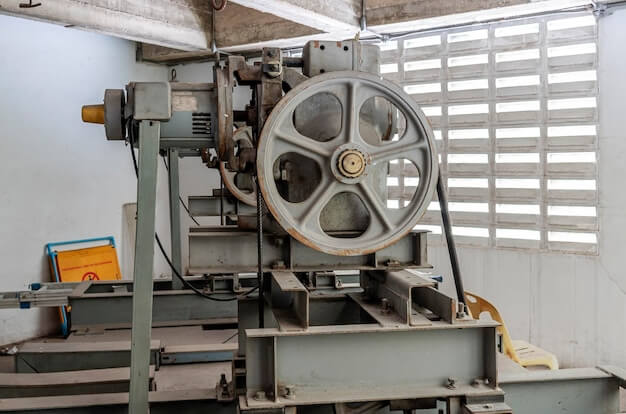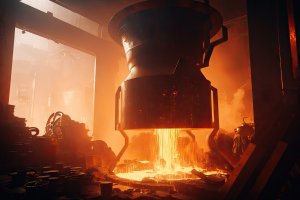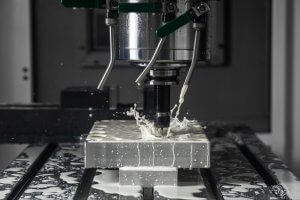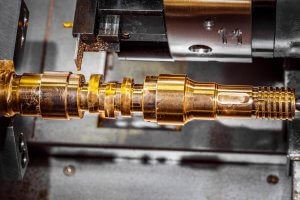Introduction to Nickel Alloys in CNC Machining
Computer Numerical Control (CNC) machining, a pivotal manufacturing process, uses pre-programmed software to dictate the movement of factory machinery and tools. The efficiency and precision provided by CNC machining make it an ideal choice for producing complex shapes that are nearly impossible to achieve with manual machining.
Nickel alloys play a substantial role in this field due to their exceptional attributes. These alloys exhibit high strength and superb corrosion resistance at elevated temperatures, distinguishing them as supreme materials for numerous challenging applications.
- Their high melting point makes them perfect for handling extreme heat conditions.
- They possess excellent thermal conductivity ensuring efficient heat transfer.
- Their tremendous mechanical properties allow usage in heavy load applications.
In fact, two such nickel-based superalloys: Inconel and Monel have earned significant recognition in CNC machining
Understanding Inconel: Defining Features and Use Cases
Inconel is a high-performance nickel-chromium alloy known for its:
- Excellent resistance to high temperatures and corrosion
- Strength and durability in extreme environments
- Wide range of applications in aerospace, chemical processing, and marine engineering
Diving into Monel: Key Traits and Industry Uses
Monel, often hailed as the resilient workhorse of nickel alloys, is a unique blend consisting primarily of nickel (up to 67%), followed by copper, with small amounts of iron and manganese. It possesses distinctive properties that make it an important material for industries around the world.
- Malleability: Monel’s pliable nature allows it to be easily shaped without compromising its structural integrity. This quality greatly expands its range of applications in various manufacturing processes.
- Corrosion Resistance: Unparalleled resistance to corrosion sets Monel apart from other materials. Thanks to this superior attribute, it can withstand harsh environmental settings such as saltwater or acidic conditions, where many other metals succumb to rapid deterioration.
This versatility of Monel finds utility in several vital sectors. For instance, in chemical industries, Monel is frequently employed to create heat exchangers, piping systems, and even pumps that contend regularly with corrosive fluids. The maritime sector leverages it for crafting propeller shafts and fixtures exposed to sea water, profiting from its remarkable resilience against rust. Furthermore, aviation and electronics companies also utilize monel due to its high thermal conductivity coupled with resistance to sparking.
Direct Comparison Between Inconel and Monel
In comparing physical characteristics between Inconel and Monel, distinguishing attributes lie in their unique compositions. Inconel contains higher proportions of nickel, chromium, and iron while boasting extreme resistance to heat and corrosion, often used in high-temperature applications like gas turbines or nuclear reactors. On the other hand, Monel is largely made up of copper and nickel with small amounts of iron and other elements enhancing its overall strength and durability.
- Inconel: Contains higher percentages of nickel, chromium, and iron – Perfect for high-temperature application due to superior heat and corrosion resistance
- Monel: Comprises mainly of copper and nickel. Known for tremendous strength and durability owing to trace additions of iron and other elements
Performance-wise under different conditions, both alloys exhibit certain strengths. While Inconel performs exceptionally well under extremely hot temperatures without losing tensile strength making it ideal for aerospace industries, Monel’s superiority shows when faced with corrosive elements like saltwater – a property that sees it widely used in marine environments.
Costs Versus Benefits Analysis of Inconel and Monel in CNC Machining
In determining the suitable alloy for CNC machining between Inconel and Monel, cost versus benefit analysis plays a critical role. On the cost aspect, Inconel tends to be more expensive than Monel due to its high-temperature resistance and corrosion properties. A detailed price breakdown would reveal that using Inconel could increase overall project costs by up to 20% as compared to substitutes like Monel.
- Inconel: The high costs result from enhanced durability, which makes this alloy highly resistant to extreme conditions such as heat, pressure, and corrosive environments. However, it can also pose challenges when machining because it hardens quickly and requires advanced cutting tools.
- Monel: This is relatively less costly but competently resists a variety of corrosive environments. It’s easy-to-maintain feature representatives significant savings over time. While Monel is somewhat softer and easier to work with, it may not withstand conditions as harsh as those endured by Inconel, thereby affecting its longevity.
Therefore, selecting an optimal alloy will rely on balancing costs against these factors including nature of the job and expected lifespan of the machine part.
Deciding Which Alloy Reigns Supreme?
The determination of which alloy – Inconel or Monel – holds the superior position in CNC machining predominantly relies on three critical factors: cost-effectiveness, durability, and industrial suitability. Evaluating how each substance performs against these criteria is vital for making informed decisions.
In terms of cost-effectiveness, Monel generally comes out ahead as it requires less nickel content than Inconel. Despite this advantage, it’s crucial to consider potential trade-offs such as durability and longevity that might justify higher upfront costs.
Assessing durability, Inconel arguably triumphs due to its outstanding oxidation resistance even at high temperatures, contributing significantly to part longevity and reducing machine downtime. While Monel also boasts considerable strength and corrosion-resistance, it can’t match Inconel’s performance under severe conditions like those in aerospace applications.
Finding fitting applications or determiningindustrial suitability brings the competition closer. Both alloys offer extensive versatility, finding use across distinct sectors from marine to chemical processing industries. However, their selection often pivots on specific operational demands. For instance, Monel’s superior saltwater corrosion-resistance makes it a preferred candidate in maritime settings, while Inconel’s superb heat stability positions it prominently in turbocharger production and nuclear reactors.
In conclusion, supremacy between these two enticing options isn’t an absolute concept but rather hinges on diverse variables that must be carefully scrutinized to attain optimal material choice.
Conclusion: Choosing the Right Material for Specific Purposes
In recapitulation, the decision between utilizing Inconel or Monel in CNC machining is significantly influenced by the specific requirements of the industry or task at hand. Each possesses unique characteristics that make it more suitable for certain applications. For instance, Inconel’s superior strength and resistance to extreme temperatures make it ideal for aerospace engineering, while Monel’s excellent corrosion resistance makes it a popular choice in marine engineering. It thus becomes apparent that ‘one-size doesn’t fit all’ when it comes to material selection; rather, the optimal alloy is heavily dictated by the specific criteria applied.
- Inconel: High strength and heat resistance for high-stress situations like Aerospace engineering.
- Monel: Superior corrosion resistance making it perfect for maritime applications.
The importance of considering these factors cannot be overstated as each project’s success largely hinges on using the correct materials. Ultimately, one must approach material selection with a clear understanding of the technical principles involved, carefully weighing Inconel’s and Monel’s contrasting properties against the demands of their intended application.
Related Posts
- Inconel vs. Monel for CNC Machining: A Comprehensive Material Comparison
CNC Machining and Material Importance in Manufacturing Computer Numerical Control (CNC) machining is a manufacturing process that leverages computers to control machine tools including lathes, mills and grinders among others.…
- Innovative CNC Machining for the Aerospace Sector
Innovative CNC Machining for the Aerospace Sector CNC machining, an abbreviation for Computer Numerical Control machining, stands as a vital player within today's manufacturing scene. Utilizing computer-generated code to control…
- Precision CNC Machining of Steel: High-Volume Production
Precision CNC Machining and High-Volume Production As an integral part of modern manufacturing processes, Precision Computer Numerical Control (CNC) machining brings about unmatched accuracy and consistency in the production of…








